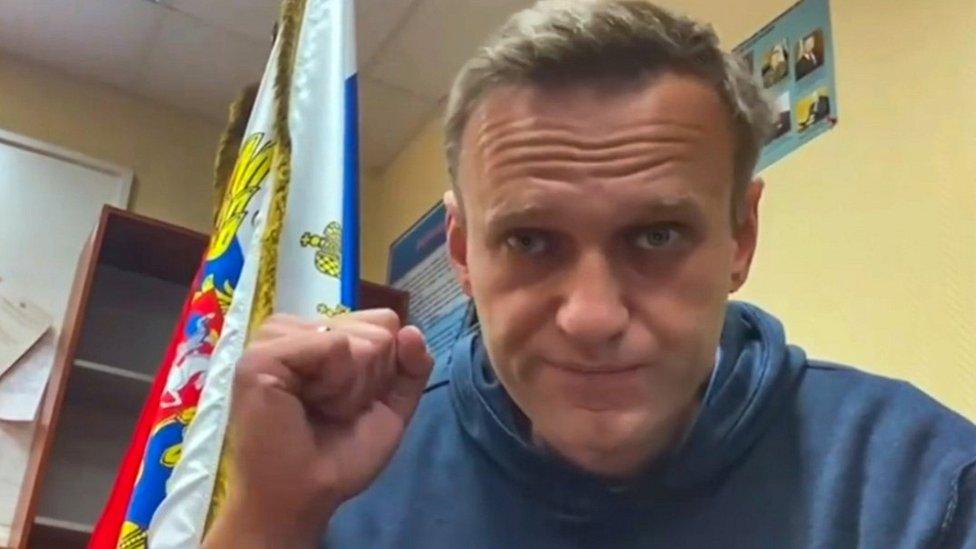Alexei Navalny jailed: Russia's Mandela moment?
- Published
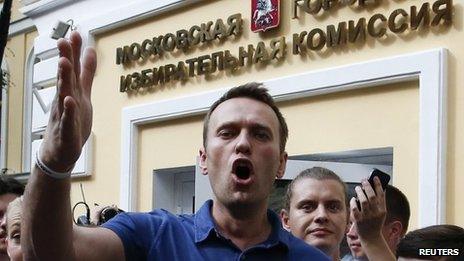
A Russian court has just delivered one of the most significant verdicts since Vladimir Putin came to power, jailing opposition leader Alexei Navalny for five years for corruption.
On the face of it, it was a low-level embezzlement trial in a small city in a region of Russia best known for its forests and fairy tales.
The case of a former unpaid adviser to the governor of the Kirov region, who was accused of lining his own pockets with unofficial commissions for contracts with a state-owned timber company.
But the trial of Alexei Navalny was much more than that.
For several years he has been a thorn in the side of the Russian political establishment, campaigning against the endemic corruption, and coining a phrase to describe the ruling party United Russia that has stuck in everyone's minds - "the party of crooks and thieves".
Biggest target
In the election years of 2011/12 his significance increased even more, as he became the unofficial leader of the protest movement that brought tens of thousands of people onto the streets. They were the biggest anti-government demonstrations of the Vladimir Putin years.
That was when an old, abandoned investigation into Alexei Navalny's brief time in Kirov was suddenly reheated by the Moscow headquarters of the Russian equivalent of the FBI - the Investigative Committee, or Sledkom.
Sledkom has become a major player in the clampdown on the protest movement, and Alexei Navalny its biggest target to date.
He was arrested, bailed, questioned several times, and then told he would stand trial in Kirov some 500 miles (800km) from his home in Moscow. He had to make the 12-hour train journey for every phase of the trial.
The case was hard fought by both sides, and in his closing remarks to the judge Alexei Navalny was unrepentant.
"We will destroy this feudal society that is robbing all of us," he raged.
"If somebody thought that on hearing the threat of six years in prison I was going to run away abroad or hide somewhere, they were mistaken. I cannot run away from who I am.
"I have nothing else but this, and I don't want to do anything else but to help my country. To work for my fellow citizens."

Navalny supporters say the election campaign will continue even if he is jailed
"This can't go on forever," he added. "A situation in which 140 million people in one of the biggest and richest countries in the world are subjugated by a handful of worthless monsters.
"They are not even oligarchs, who built up their wealth through shrewdness or wisdom. They are a bunch of former Komsomol activists, turned democrats, turned patriots, who grabbed everything into their own hands."
'Only one strategy'
Lilia Shevtsova, an analyst at the Carnegie Center in Moscow, said she had no doubt this was a political trial.
"The whole Navalny case is viewed by the Kremlin as a warning to society. Vladimir Putin would like society to accept the new rules of the game, and the new rules are 'You have to obey us on the principle of total and absolute loyalty. You don't have the right to have ambitions, you have no right to fight for power. Loyalty is the main principle of your behaviour.'"
Only last week Alexei Navalny lodged his papers for his first proper foray into mainstream Russian politics - an attempt to run in the September elections to choose the mayor of Moscow.
Even though he had no access to the government-owned television channels, he was reckoned to be in second place, behind the Kremlin-backed incumbent Sergei Sobanyin.
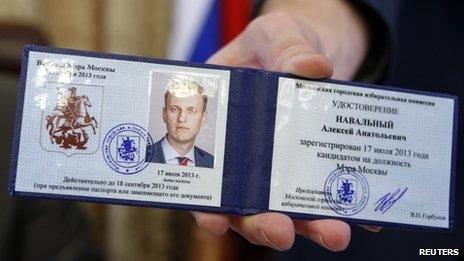
Navalny has been granted his mayoral candidate certification
Before the verdict came through, his campaign team said they would fight on, no matter what.
The campaign chief, internet entrepreneur Leonid Volkov, said: "We will just have to bring more volunteers on to the streets. It's our only strategy. We have made a very clear decision that our campaign will not end.
"He may be in prison, but he won't be expelled from the ballot, because it will take some time for the appeal court hearing to take place."
'No widespread support'
The analyst Lilia Shevtsova warns that Alexei Navalny's young supporters will be greatly angered by his imprisonment.
"Navalny is becoming a martyr, a new Russian Mandela," she told me. "Of course they will be prepared to confront the authorities in the future."
But she said that his support is still too narrow for this to be a defining political moment.
"There is no danger for the time being of a massive tide. Overall the mood within the population at large is pretty quiet.
"Yes, there is frustration and annoyance, they don't like Putin any more. But few people see a clear alternative. Navalny is not a hero for all people who feel frustrated."
"In order to be a real political figure, not just a social activist and a rebellious figure of the internet, he has to have a political movement behind him - a clear agenda which is much broader and sophisticated than the struggle with corruption."
- Published5 July 2013
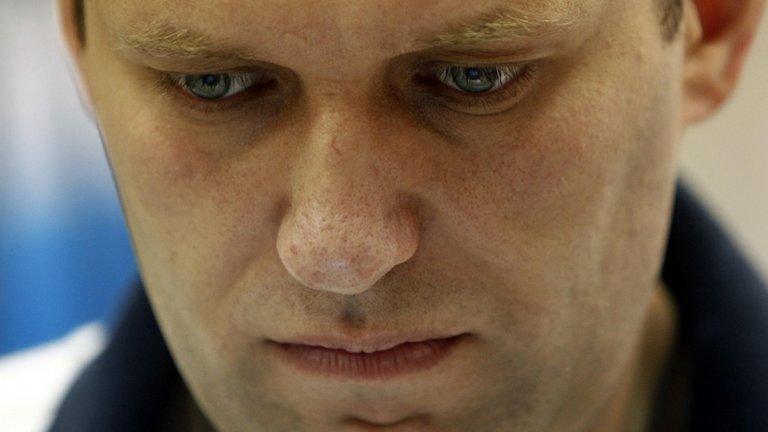
- Published25 April 2013
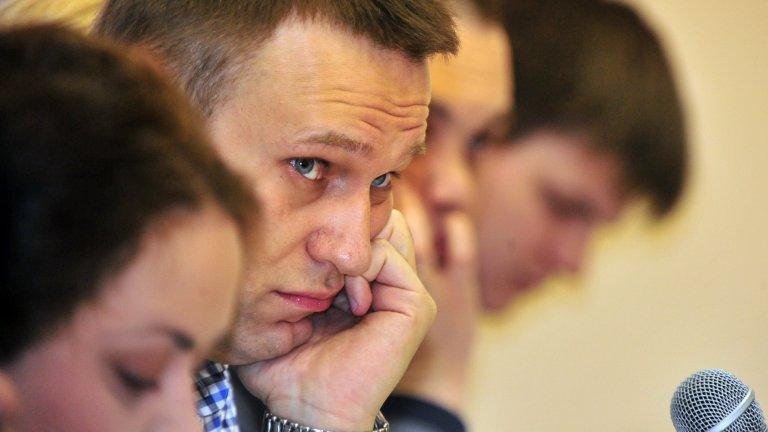
- Published16 February 2024
